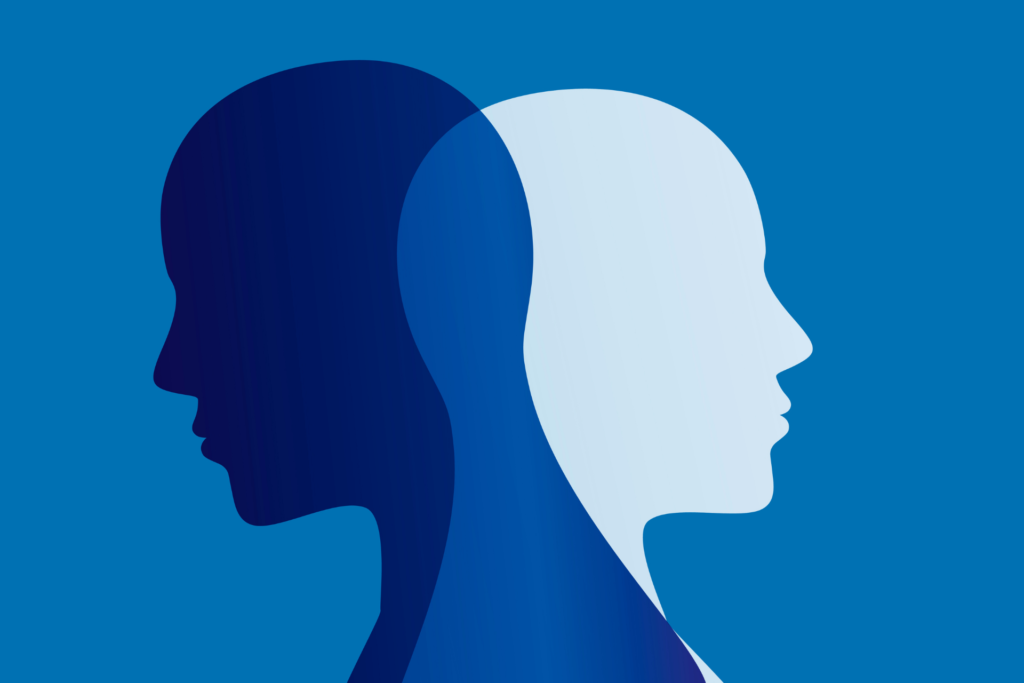Today is World Bipolar Day which aims to create awareness, educate, and remove the stigma that exists for so many. Bipolar is increasingly becoming one of the biggest mental health challenges that affects over 1.3 million people in the United Kingdom. It is thought that 60% of people living with Bipolar in the UK do not receive treatment or support.
Oxfordshire Mind experts by experience have kindly shared their bipolar stories which offer honest experiences of living with bipolar, which we hope you find interesting and inspirational.
On average it takes an individual 9 years to get the correct diagnosis of bipolar and for many, finding the right treatment can be a long and exhausting journey. This can have a huge impact on the individual, their families, and friends. We have shared some important information for you to read to better understand bipolar, symptoms and how to manage it.
What is Bipolar?
Bipolar disorder is identified by two mood states: depression and mania. There is also hypomania, a milder form of mania and cyclothymia, a condition related to bipolar with milder symptoms.
Bipolar is classified as Bipolar 1 and Bipolar 2 that present different balances of mood states. It is important to recognise that people’s experience of bipolar can differ with some alternating between moods over long intervals whilst others may experience mood swings in quick succession, also known as rapid cycling.
What are the symptoms?
An individual with bipolar may have manic episodes, depressive episodes, or “mixed” episodes. A mixed episode has both manic and depressive symptoms. These mood episodes cause symptoms that last a week or two or sometimes longer.
The feelings are intense and happen along with changes in behaviour, energy levels, or activity levels that are noticeable to others.
Symptoms of a Manic Episode
Can include:
- Feeling jumpy or wired, more active than usual
- Racing thoughts
- Decreased need for sleep
- Talking fast about a lot of different things ‘flight of ideas’
- Feeling like you are unusually important, talented, or powerful
- Lack of control with money and impulsive spending habits
Symptoms of a Depressive Episode
Can include:
- Feeling very down or sad or anxious
- Trouble concentrating or making decisions
- Trouble falling asleep, waking up too early or sleeping too much
- Lack of interest in almost all activities
- Unable to do regular things like showering, self-grooming or cooking
- Feeling hopeless, worthless or thinking about death or suicide
Conditions that can co-occur with Bipolar
Many people with bipolar also may have other mental health conditions such as:
- Psychosis symptoms such as hallucinations or delusions
- Anxiety disorders/Hyperactivity disorders such as ADD and ADHD
- Addictions surrounding the use of drugs and alcohol
- Eating disorders such as binge eating or bulimia
How is Bipolar Diagnosed?
To diagnose a person with bipolar, a doctor or other health care provider may:
- Complete a full physical exam
- Order medical testing to rule out other illnesses
- Refer the person for an evaluation by a psychiatrist
You cannot self diagnose for bipolar and must be evaluated by a professional health care worker.
How is Bipolar treated?
Treatment helps many people, even those with the most severe forms of bipolar. Doctors treat bipolar with medications, psychotherapy, or a combination of treatments.
- Regular exercise, such as jogging or swimming helps with depression and anxiety, promotes better sleep, and is healthy for your heart and brain.
- Keeping a life chart, which records daily mood symptoms, sleep patterns, and life events, can help people and their doctors track and treat bipolar disorder.
Coping with Bipolar
Living with bipolar can be challenging but there are ways to help make it easier for yourself, a friend, or a loved one.
- Get treatment and stick with it as recovery takes time and is not easy
- Keep medical or therapy appointments and talk with the provider about options
- Structure activities by keeping a routine for eating, relaxing and sleeping
- Learn to recognize your mood swings
- Ask for help when trying to stick with your treatment
- Be patient with yourself improvement takes time
If you or anyone else you know are struggling with your mental health, the Oxfordshire Mind Information Service is here for you. You can contact the Information Service (Monday-Friday, 09:30am to 4.30pm) using the following details:
![]() 01865 247788
01865 247788
![]() 07451 277973
07451 277973
![]() info@oxfordshiremind.org.uk
info@oxfordshiremind.org.uk


